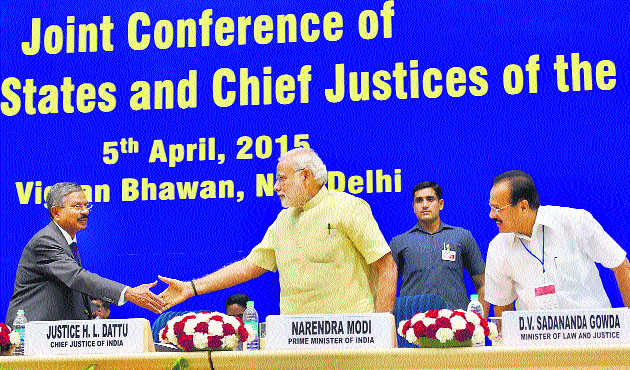
All the stakeholders should come together.
PP Rao
THE objective is to select the most suitable candidates for judgeship on merits, therefore, it is necessary to invite suggestions with justification from the stakeholders, namely the Bench, including retired judges, and Chief Justices of the Supreme Court and of high courts, the Bar which represents the litigant public and the executive which is the appointing authority.
All the suggestions received should be considered objectively and relative merit evaluated with reference to relevant factors. In SC Advocates-on-Record Association Vs. UOI (1993) 4 SCC 441, the Supreme Court identified the requirements for appointment of a judge as “legal expertise, ability to handle cases, proper personal conduct and ethical behaviour, firmness and fearlessness”.
While considering high court judges for elevation to the Supreme Court, the quality of judgments delivered, integrity, independence of the judge, rate of disposal, time taken for the pronouncement of judgments, punctuality, court manners, relations with the Bar need to be considered, among other things.
While considering an advocate the number of reported cases in which he/she has argued, the volume of work commanded, ability, integrity, independence notwithstanding political affiliation, if any, professional ethics, including behaviour towards the court and the counsel opposing him or her, have to be considered, besides the income tax returns. The opinion of the Chief Justice and senior judges of the court and leaders of the Bar where the advocate is practising may also be obtained.
The task of evaluation of the relative merit of candidates for judgeship is arduous and time consuming. It will be difficult for the members of the collegium to undertake this task all by themselves. It is necessary to have a permanent mechanism to assist the collegium in the shape of a broad-based statutory search committee representing all stakeholders, namely, the Bench, the Bar and the executive with an adequately staffed secretariat with a Research & Analysis Wing consisting of experienced lawyers, retired judges, academicians.
I suggest the following composition of the search committee: A distinguished former Chief Justice of India (Chairman); two reputed retired judges of the Supreme Court known for their independence, integrity and ability; two eminent members of the Bar; an eminent jurist; the Union Law Minister or his nominee as members.
For the selection of candidates for appointment as judges of high courts, a former Chief Justice of a high court belonging to the state concerned and the Minister for Law of the State, or his nominee, may be co-opted as members of the search committee.
The power of appointment of the Chairman and members of the search committee may be vested in the President of India to be exercised in consultation with the Chief Justice of India as the representative of the collegium.
The search committee would invite suggestions from all informed sources, including members of the collegium, judges — sitting and retired, leading members of the Bar, the Bar Associations concerned and the Bar Council of India. The search committee will collect relevant data of all eligible and deserving persons who merit consideration and assess their merit and suitability with the help of the Research & Analysis Wing of the committee and prepare the final select list of the candidates for appointment as high court and Supreme Court judges separately in the ratio of 3:1; three names for one post.
The collegium shall consider the candidates recommended by the search committee in the first instance and thereafter, if need be, consider other candidates more deserving than those recommended by the search committee, if any. In the event of the collegium selecting a candidate or candidates other than those recommended by the search committee, it shall record reasons for such selection in writing.
After making the final selection, the collegium shall forward its recommendations to the President of India for consideration and appointment.
Search committees are there under different Acts of Parliament, including one in the Lokpal and Lokayukta Act, 2013.
There need not be any hesitation to include members of the Bar in the search committee. Even after the collegium system came into operation in 1993, some of the Chief Justices of India have been seeking or considering the suggestions and views of a few eminent members of the Bar. That has been the tradition throughout because the Bar is the judge of judges. The Bar alone represents the entire litigant public, including governments and public sector undertakings, in courts. The Bar is more conversant with who is who among the practitioners and judges of high courts. Therefore, the Bar must have due representation in the proposed search committee.
In order to ensure transparency and accountability, the proceedings of the search committee as well as the collegium shall be put in public domain as soon as the appointments are made.
The proposed mechanism will minimise the scope for the play of extraneous factors like favouritism, nepotism, corruption, personal prejudices, etc. and facilitate good appointments.
I am of the considered view that the Supreme Court by a judicial order cannot improve the collegium system to ensure transparency, accountability and objectivity in the selection of candidates for judgeship. Coordinated action by all the three wings of the state, namely, the executive, Parliament and the judiciary alone can improve the system in the manner desired.
— The writer, a senior advocate of the Supreme Court, is an expert on constitutional law.



























